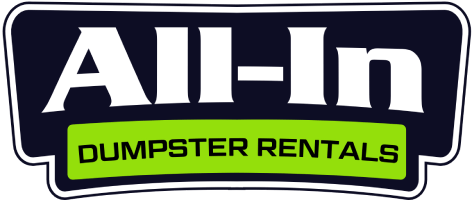Discover essential hazardous waste compliance regulations for Asheville businesses. Learn about proper disposal methods, reporting requirements, and how All-In Dumpster Rentals can help your business stay compliant.
_______________________________
Commercial Hazardous Waste Compliance: What Asheville Businesses Must Know
Running a business in Asheville comes with many responsibilities, and proper hazardous waste management is one that cannot be overlooked. Whether you operate a small auto repair shop, a manufacturing facility, or a healthcare practice, understanding your obligations regarding hazardous waste is crucial for legal compliance, environmental protection, and community safety. At All-In Dumpster Rentals, we’re committed to helping local businesses navigate these complex requirements. This guide breaks down what Asheville businesses need to know about commercial hazardous waste compliance, from identifying what qualifies as hazardous waste to understanding your reporting obligations.
Understanding Hazardous Waste Classifications
Not all commercial waste is created equal. The EPA classifies hazardous waste based on specific characteristics or inclusion on particular lists. Your business waste may be considered hazardous if it is:
- Ignitable (flash point below 140°F)
- Corrosive (pH less than or equal to 2, or greater than or equal to 12.5)
- Reactive (unstable, reacts violently with water)
- Toxic (harmful when ingested or absorbed)
Common examples in Asheville businesses include solvents, certain cleaning products, paints, pesticides, batteries, and electronic waste. Healthcare facilities must also handle medical waste according to specific regulations. Understanding which of your waste streams qualify as hazardous is the first step toward proper management.
North Carolina’s Hazardous Waste Generator Categories
Your compliance requirements depend largely on how much hazardous waste your business generates. North Carolina follows federal guidelines in categorizing generators:
Very Small Quantity Generators (VSQGs)
Businesses generating less than 220 pounds of hazardous waste per month face fewer regulations but still have responsibility for proper disposal. Many small Asheville businesses fall into this category.
Small Quantity Generators (SQGs)
If your business generates between 220 and 2,200 pounds monthly, you’ll need to obtain an EPA ID number, follow storage requirements, and maintain detailed records of waste management.
Large Quantity Generators (LQGs)
Businesses producing more than 2,200 pounds of hazardous waste monthly face the most stringent requirements, including regular reporting, comprehensive training programs, and detailed contingency planning.
Local Compliance and Reporting Requirements
Asheville businesses must comply with federal EPA regulations, North Carolina Department of Environmental Quality (NCDEQ) requirements, and local Buncombe County waste management ordinances. This typically includes:
Obtaining proper identification numbers from regulatory agencies if you’re an SQG or LQG. Maintaining accurate records of waste generation, storage, transportation, and disposal. Submitting biennial reports (for LQGs) detailing your hazardous waste activities. Using proper storage containers and following accumulation time limits. Ensuring all hazardous waste is transported using licensed haulers and sent to permitted treatment, storage, and disposal facilities.
Responsible Disposal Options in Western North Carolina
Asheville businesses have several options for hazardous waste disposal:
Specialized hazardous waste transporters that service Western North Carolina. Permitted treatment, storage, and disposal facilities accepting commercial hazardous waste. Recycling programs for specific waste streams like solvents, oils, and electronic waste. The Buncombe County Landfill accepts certain hazardous materials from VSQGs through their special waste program.
Remember that standard roll-off dumpsters cannot accept hazardous waste, but at All-In Dumpster Rentals, we can guide you toward appropriate disposal channels for specialized waste streams.
Penalties for Non-Compliance
The stakes for non-compliance are high. Businesses failing to properly manage hazardous waste may face:
Substantial financial penalties from state and federal regulators. Potential criminal charges for willful violations. Required remediation of any environmental contamination. Damage to business reputation and community standing.
Developing a Hazardous Waste Management Plan
Every Asheville business generating hazardous waste should develop a comprehensive management plan that includes:
Regular waste audits to identify all hazardous streams. Staff training on proper handling and emergency procedures. Clear documentation systems for tracking waste from generation to disposal. Contingency plans for spills or other emergencies. Regular review of changing regulations.
How All-In Dumpster Rentals Can Help
While our standard dumpster rentals aren’t suitable for hazardous waste, we’re committed to supporting Asheville businesses with their waste management needs. We can:
Provide guidance on segregating non-hazardous waste from hazardous streams. Offer appropriate dumpster solutions for your non-hazardous commercial waste. Connect you with local resources for hazardous waste management. Help you develop efficient waste reduction strategies.
Ready to Improve Your Business Waste Management?
Contact All-In Dumpster Rentals today for a free consultation on your commercial waste needs. While we specialize in non-hazardous waste removal, our local expertise can help point you in the right direction for all your waste management challenges. Call us at [phone number] or book online—we’re available from 6:30 am to 7:00 pm, 7 days a week to support your business.
